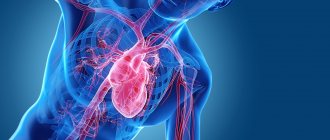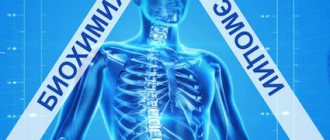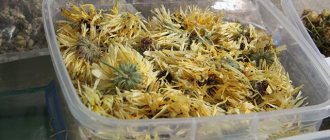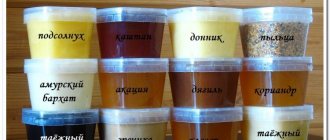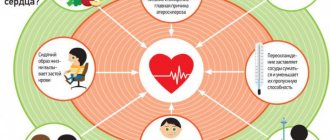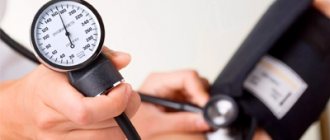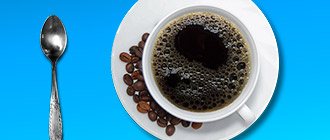Updated: 01/06/2021 Over the course of 80 years of human life, the heart muscle makes about 3 billion contractions without interruption. Not so many people manage to live to 80 years of age, but to live to that age with a healthy heart is a real feat that only a few can achieve.
Heart disease has always been the cause of a large percentage of mortality, and modern living conditions only worsen the situation. Constant stress, a polluted atmosphere, poor nutrition and low-quality products lead to the fact that the cardiovascular system wears out much earlier than a person reaches old age. A significant role in this is played by the lack of vitamins and microelements, the replenishment of which with food does not always occur in sufficient quantities.
Dietary supplements will not be able to cure an ingrained disease or get rid of a hereditary predisposition. But they give the body substances, using which it can fight impending and existing problems. A therapist or cardiologist will be able to select the right vitamin and mineral complex, taking into account age, weight and health status.
List of essential vitamins involved in cardiovascular activity:
- C (ascorbic acid).
Accelerates metabolic processes, helps strengthen the myocardium, and prevents cholesterol from settling on the walls of blood vessels. - A (retinol).
Prevents the development of atherosclerotic processes, improves metabolic processes. - E (tocopherol).
An antioxidant that prevents fats from oxidizing, which makes it necessary to protect tissues from damage. If tocopherol is regularly supplied to the body in sufficient quantities, the risk of developing coronary disease and stroke is reduced by 30%. - P (rutin).
Responsible for strengthening the arteries, reduces the fragility of blood vessels, and eliminates excessive bleeding. - F (includes several polyunsaturated fatty acids: linoleic, arachidonic and linolenic).
Helps strengthen heart tissue, prevents the settling of cholesterol and the formation of blood clots.
In addition, you should pay attention to B vitamins, the regular supply of which in sufficient quantities allows you to avoid many problems that appear with age or as a result of overexertion.
B vitamins necessary for proper heart function:
- B1 (thiamine).
Its deficiency provokes the appearance of excess fluid in the tissues, which occurs as a result of the accumulation of pyruvic acid. The person experiences rapid breathing and an accelerated pulse. - B2 (riboflavin).
Necessary for the formation of the tissue structure of the heart muscle. - B6 (pyridoxine).
Regulates metabolic processes, including when there is insufficient oxygen supply to muscle tissue. Helps prevent cholesterol deposition and promotes the transport of amino acids. - B9 (or folic acid).
Participates in the metabolism of homocysteine (one of the amino acids), thereby reducing the risk of heart attack. It is not produced by the human body, so care should be taken to ensure its supply through food or special medications.
In addition to supporting the heart, the vitamins listed above are necessary for the full functioning of the body as a whole - from internal organs to external manifestations (improving the condition of the skin, hair, reducing irritability, increasing performance, memory, concentration).
There is one more component used in dietary supplements that is worth paying close attention to, especially for older people:
Coenzyme Q10 (ubiquinone).
It is a vitamin-like substance that helps produce 95% of the body's cellular energy. Without its participation, the synthesis of ATP (energy molecules) is impossible. When there is a deficiency of the substance, the heart suffers first, since it needs energy most of all. Ubiquinone also helps eliminate free radicals, is an antioxidant, and normalizes blood pressure, which makes it indispensable for hypertension. A healthy young body produces coenzyme on its own, but with age this function decreases.
In addition to vitamins, it is worth taking care of an additional source of microelements.
Necessities include:
- Magnesium.
Maintains the balance of potassium and sodium, normalizes blood pressure, helps metabolism in the myocardium, and reduces the intensity of thrombosis. - Calcium.
Responsible for strengthening blood vessels and normalizing the contraction of the heart muscle. To be absorbed, it is recommended to take it with vitamin D. - Potassium.
Helps conduct nerve impulses along the fiber, which is necessary for myocardial contraction. - Phosphorus.
Like potassium, it helps the conduction of nerve impulses. It is also a building material for cell membranes. - Selenium.
Destroys free radicals, thereby reducing the intensity of cell damage, and also helps absorb vitamins and minerals.
Many people prefer to buy dietary supplements without consulting a specialist. Some people do not consider them a serious drug, others cannot afford expensive products (and doctors like to prescribe expensive drugs), and many try to use only products with natural ingredients. In this case, you need to know well the characteristics of your body, its reactions to various components and carefully study the contraindications. And after selecting several suitable options, it is still recommended to coordinate an appointment with your doctor.
We have selected 10 vitamins that have proven themselves well among specialists and patients, which will help restore damaged cells, maintain the heart and blood vessels in good condition, or reduce the intensity of symptoms in diseases.
There are contraindications, be sure to consult your doctor!
| Rating (2021) | Prices, ₽ | A country |
| 1. Doppelhertz Active Coenzyme Q10 + Magnesium + Potassium | from 520₽ | Germany |
| 2. Orthomol Cardio | from 5500₽ | Germany |
| 3. Omega-3 Fish Oil Concentrate Solgar | from 670₽ | USA |
| 4. Doppelhertz active Folic acid + Vitamins B6+B12+C+E | from 380₽ | Germany |
| 5. Coenzyme Q10 Cardio RealCaps | from 300₽ | Russia |
| 6. Floradix Protector Plus | from 1000₽ | Germany |
| 7. Doppelhertz vip cardio omega | from 50₽ | Germany |
| 8. Directed by Evalar | from 800₽ | Russia |
| 9. CardioActive Omega-3 Evalar | from 280₽ | Russia |
| 10. Dihydroquercetin Evalar | from 170₽ | Russia |
Recommendations for taking vitamins and medications for heart disease
Vitamins for the heart in the presence of tachycardia, bradycardia and other types of arrhythmia are produced in the form of capsules, tablets and solution for injections. The release form is selected individually by the attending physician. We will look at general recommendations for taking medications to achieve better results and maintain cardiovascular health.
Of course, it is very important to follow your doctor's recommendations if you are prescribed medications. The duration of the course is determined by the attending doctor. For many complex drugs, the period is 2–4 weeks when taken daily. Injections are most often prescribed for a period of 7–10 days.
With regard to nutraceuticals, it is worth paying attention first of all to the comparison of taking vitamins with food. Some of them can be taken before or after meals. This nuance is associated with an irritating effect on the gastric mucosa.
We recommend
“Correct carbohydrates for women: list of products, daily intake for weight loss” Read more
Medicines and vitamins for cardiac arrhythmia must be taken every day at the same time. In order not to forget about this, you can combine taking pills with food, hygiene procedures and other household activities. Take medications with plain water. Other drinks (coffee, tea, soda, juices) affect their absorption and distribution. To control your medication intake, you can keep a diary. It will indicate the dose, time and date of administration. This method is especially suitable for forgetful people who do not remember whether they took the pills or not.
For more effective treatment, the patient is recommended to follow the rules below when taking vitamins and medications for arrhythmia
:
- give up alcoholic drinks and smoking;
- sleep 7-8 hours a day;
- exercise at a moderate pace;
- avoid physical and mental overload;
- make a proper diet;
- avoid stressful situations.
Particular attention should be paid to taking medications for such groups of people.
:
- children under 18 years of age;
- women during pregnancy and lactation (breastfeeding);
- elderly people over 65 years of age.
When drawing up a treatment regimen, it is highly advisable for the doctor to know about all existing chronic processes in the body, known allergic reactions and possible hereditary predisposition. These factors can dramatically affect the effectiveness of therapy.
conclusions
Vitamin complexes are vital for maintaining and strengthening the cardiovascular system. They can improve the body’s energy reserves, provide adequate nutrition to the heart muscle, strengthen vascular walls and stop their damage. During metabolism, many compounds normalize lipid (fat) metabolism of triglycerides and cholesterol, which prevents the progression of atherosclerosis and the deposition of plaques in the lumen of arteries and veins. Due to the impact of the correct course of preventive therapy, the risk of developing cardiovascular diseases can be reduced by 50-70%.
Folk remedies to improve heart function
In addition to medicinal and vitamin support for the cardiovascular system, various folk remedies can be successfully used. Traditional medicine methods are available to everyone and are relatively safe. Below are some recipes.
Means for treating the heart and strengthening blood vessels
:
- Take 4 tbsp. l. hawthorn fruits, motherwort herb, dried cucumber and 1 tbsp. l. daisies. Combine and mix all ingredients. Pour a tablespoon of the mixture into a thermos and pour 250 ml of boiling water. Infuse the medicine for 8 hours. Take the strained infusion three times a day, 25 ml for two weeks.
- Grind the rosehip root. Pour boiling water over a tablespoon of raw material and simmer for 15 minutes over low heat. Consume 1/3 cup for 15 days.
- Pour 250 ml of boiling water over a tablespoon of chopped hawthorn and leave to steep for 1.5 hours. Take ½ glass of the strained drink twice a day. The duration of treatment is six months.
- Chop thirty green walnuts and pour in a liter of vodka. Leave in the sun for 14 days. The drug should be taken 20 drops three times a day. The course of treatment is 1 month.
- Chop three small onions and pour half a liter of alcohol. Leave in a warm place for a week. Take the resulting product, five grams on an empty stomach, dissolving in a glass of liquid. This medicine helps effectively fight high blood pressure.
- Pour boiling water over two teaspoons of crushed calendula flowers and leave for 15 minutes. Drink ½ glass 4 times a day.
- Motherwort will help relieve stress and improve the functioning of the heart muscle. Pour two tablespoons of herbs into a glass of boiling water. After cooling, strain and take two tablespoons 5 times a day before meals.
What is Riboxin
A drug based on inosine, a precursor of adenosine triphosphate. Regulates blood circulation, absorption of glucose by cells, restores nutrition to the myocardium. Several pharmaceutical forms of Riboxin are produced:
- tablets: yellow, coated, contain 200 mg of active substance, packaged in cell blisters, packed in 10–50 pcs.;
- Riboxin Lect: soft gelatin capsules containing 200 mg of inosine, up to 50 pcs. in one package;
- 2% solution for parenteral administration: a clear, water-based liquid in ampoules of 5–10 ml, used for injection.
Oral medications contain starch, gelatin, sucrose, glycerin and other formative substances.
Strengthening the heart in old age
Older people begin to get sick more often due to the fact that their body undergoes a number of changes. A common phenomenon for an elderly body is an increase in the size of the heart. The volume of the left ventricle usually changes. The mitral valve and aortic valve are also highly susceptible to changes, the valves of which in older people no longer have the same flexibility.
Nutrients, vitamins and minerals are no longer absorbed so well. Immunity also decreases, mainly due to the many chronic diseases of the elderly.
Judging by statistics from the Institute of Nutrition of the Russian Academy of Medical Sciences, only 3-5% of the Russian population systematically take vitamins. However, they are extremely necessary for older people suffering from heart disease.
Vitamins make it possible, even in old age, to slow down the aging process of the body, increase efficiency and improve the patient’s well-being.
We recommend
“Nutrition for diarrhea: top 10 foods to help” Read more
What vitamins are necessary for good heart function in an elderly person?
- Vitamin C
(ascorbic acid) speeds up metabolic processes, makes vascular walls and myocardium stronger, more resilient, accelerates all metabolic processes, and prevents atherosclerosis.
- Vitamin A
(retinol) reduces the formation of plaques in blood vessels.
- Vitamin E
(tocopherol) has an antioxidant effect, strengthens blood vessels and the heart, protecting against damage.
- Vitamin P
(rutin) in addition to strengthening blood vessels, it also reduces their permeability and bleeding.
- Vitamin F
(linoleic and linolenic acids). Helps strengthen heart tissue, prevents the formation of cholesterol plaques on the walls of blood vessels.
- Coenzyme Q10
– a chemical substance that is formed in the human liver. It can give an elderly person energy, reduce the risk of a heart attack and/or heart rhythm disturbances.
- Vitamin B1
(thiamine) is required to maintain normal heart rhythm.
- Vitamin B6
(pyridoxine) - reduces lipids and cholesterol levels in the blood.
Today in pharmacies you can also see special vitamins that are intended specifically for older people. Regular use can not only improve weak immunity, but also prevent heart disease.
To prevent an elderly person from suffering from heart pain, doctors recommend a special diet. Most often, recommendations are given by the attending cardiologist; it is he who determines the severity of the disease and, in accordance with this, decides what the patient can eat and what absolutely cannot be eaten.
As a rule, those suffering from heart disease are prohibited from eating foods that may contain a lot of cholesterol. The reason is clear - this substance leads to the formation of plaques in blood vessels. In addition, elderly patients should not eat sour, smoked, too salty or fatty foods.
There are a number of heart-healthy foods that older adults should eat:
- Potassium-rich foods
. This could be grapes, bananas, cocoa, zucchini, squash, apricots, etc.
- Products containing magnesium
. Eating them has a good effect on both the heart and nervous system. Doctors recommend adding seaweed, buckwheat, and watermelons to your regular diet.
- Foods High in Vitamin C
. These include peppers, raspberries, apples, lemons, oranges, tangerines and other citrus fruits.
- Fruits vegetables
. The more of them, the healthier the body, the better the elderly patient feels.
- Herbal tea
(including chamomile or lemon balm) will give you energy and help solve the problem of heavy breathing.
- Honey
. If eaten in moderation, it will be beneficial. Moreover, honey can relieve pain. It is recommended to use old honey that has stood for more than 6 months from the date of collection.
Heart training in old age
A sedentary lifestyle is most often the cause of heart disease in older people. Of course, intense training and hyperactive sports are not the right choice for an aging body. Nevertheless, it is possible to avoid injury, the main thing is to approach the process thoughtfully. First, determine the optimal load on the body. Secondly, seek advice on this issue from a doctor.
We recommend
“The most dangerous fats: how they affect health” Read more
Here are some positive aspects of training that strengthens the heart and blood vessels
:
- Sport helps reduce the level of CRP (C-reactive protein), which is most often the cause of inflammation of various organs in an elderly person. The higher this indicator, the higher the risk of heart disease.
- Blood pressure is brought into order, the level of triglycerides and blood sugar is normalized.
- Muscles and coordination become better.
- The brain is saturated with oxygen, which improves memory and accelerates thought processes.
- Less risk of stroke and/or heart attack.
Doctors recommend buying a heart rate monitor before starting physical education. It will help you control your HR (heart rate).
Training in this case should not exceed 30 minutes in case of weak blood vessels and an hour in case of minor health problems. It is better to exercise several times a week.
What can you do to strengthen your heart and blood vessels?
:
Warm-up
Do exercises in the morning. This can include swinging arms and legs, rotating joints, torso, lifting limbs, bending, walking and slow running in place. Literally five minutes is enough to tone yourself up.
Vacuum simulation
Learn to breathe correctly. Take air into your lungs, exhale deeply, then pull your stomach in and inhale sharply again. A palm on the stomach will allow you to control the process and correct movements and breathing. Spend 15-20 seconds doing this exercise once a day.
Squats at the door
When you squat, extend your arms and hold on to the doorknob. At the same time, watch your knees; they should remain level with your toes.
This exercise allows you to make your heart work as efficiently as possible in old age. In this case, you can squat shallowly, 20-30 cm is enough.
Nordic walking
In order to strengthen the functioning of the heart in old age, Nordic walking is recommended. From the outside it looks like ordinary walks of a person with ski poles, on which he leans while moving.
At the same time, the legs and arms act synchronously, which affects the human breathing process. You are allowed to lower your legs onto your heel, and then step on your toes. Movements should be smooth, as during a normal walk. But their range may be a little larger than usual.
There are many types of physical exercises. For example, you can walk quickly or slowly, but for a long time, take long steps or jogs. In any case, you need to focus on the age of the elderly person. The older the “athlete”, the less active Nordic walking he needs.
Thanks to the existing supports, these exercises eliminate the high load on the spine and/or joints. For older people, Nordic walking can be an excellent help in the fight against heart disease.
Cardiket
"Kardiket" is a long-acting heart medicine. Dispensed with a doctor's prescription. The active substance of the drug is isosorbide dinitrate. “Cardiket” is from the group of nitrates that quickly dilate blood vessels. After administration, it begins to act within 15-20 minutes. This heart remedy lowers blood pressure (usually lower) and dilates blood vessels that have been spasming.
"Kardiket" is prescribed as a prevention of heart attacks and angina pectoris, to relieve pressing pain in the heart, and in complex therapy of heart failure.
"Cardiket" is NOT suitable as an "emergency aid" during an attack of angina. Contraindications include: hypotension, glaucoma, recent traumatic brain injury, cardiogenic shock. Side effects include: decreased blood pressure, dizziness, headache, dry mouth. If you take Cardiket for a long time, withdrawal syndrome is possible, so reduce the dosage of the drug for the heart little by little.
Diet for the prevention of cardiovascular diseases
Let's now talk about what kind of diet is recommended for the prevention of cardiovascular diseases. Today, there is a large amount of research on the topic that the Mediterranean diet is the most effective in preventing cardiovascular diseases.
Study
: The Mediterranean Diet: its definition and evaluation of a priori dietary indexes in primary cardiovascular prevention, Mediterranean diet and reduction in the risk of a first acute myocardial infarction: an operational dietary healthy score
The classic Mediterranean diet involves eating plenty of extra virgin olive oil, fruits, nuts, vegetables, whole grains, moderate amounts of seafood and poultry, and limiting fatty dairy products, red meat, processed meats and sweets. .
Why does this type of diet significantly reduce the risk of developing CVD? Let's figure it out.
Vegetable oils and fatty sea fish are rich in omega 3 fatty acids, which are essential components of cardiovascular health, reducing high cholesterol and increasing HDL.
Pectin, found in some fruits and berries, has also been shown to lower LDL levels and increase HDL by reducing the absorption of cholesterol in the intestines and increasing the excretion of bile acids. The largest amount of pectin is found in black currants, beets, apples, plums, oranges, carrots, and cabbage.
Also, berries, fruits and colored vegetables are rich in bioflavonoids, which are known not only as powerful antioxidants, but also as substances that inhibit the oxidation of LDL, reducing the risk of developing atherosclerosis. Flavonoids such as quercetin and rutin suppress lipid peroxidation in mitochondria. In addition, the “French paradox” is known - a low incidence of CVD when drinking red wine containing quercetin, rutin, resveratrol, within reasonable limits, of course.
Healthy and harmful foods for the heart
Below is a list of essential foods for cardiovascular health.
- Bananas
- a source of potassium, this is the primary reason why they are indispensable for the functioning of the heart and the condition of blood vessels. Potassium helps reduce blood pressure and the likelihood of heart attacks and strokes. In addition, potassium normalizes the functioning of the nervous system and protects against the accumulation of cholesterol plaques.
- Pomegranate
- one of the most valuable fruits for strengthening and supporting the condition of the heart and blood vessels. Its consumption prevents the development of atherosclerosis, maintaining blood flow levels and oxygen saturation of the heart. The substances contained in pomegranate protect against the development of angina pectoris and help maintain the strength of the walls of blood vessels. Pomegranate juice is one of the most beneficial juices for the heart and promotes hematopoiesis and circulation. It is also actively used for the treatment and prevention of anemia; a course of pomegranate juice has a general strengthening effect for the whole body.
- Lemon
— due to the consumption of lemons, the heart muscle is strengthened and blood vessels are cleansed. Lemon is rich in fiber, carotenes, pectins, esters, potassium, vitamin C. Substances contained in lemon prevent the development of angina, tachycardia, coronary artery disease, hypertension, and prevent the occurrence of heart attacks, heart attacks and strokes. Both lemon juice and zest are beneficial.
- Tomatoes
- prevent thrombus formation, prevent the development of atherosclerosis, anemia, heart attacks. In addition, by consuming tomatoes, the risk of developing coronary disease is reduced, and the development of tachycardia and hypertension is prevented by normalizing blood pressure. Tomatoes protect against heart attacks and improve the functioning of the nervous system, normalizing the functioning of the heart and regulating its rhythm.
- Garlic
- is an indispensable component of cardiovascular health. It contains unique substances, including allicin, inulin, lysine and others. Consumption of garlic reduces blood pressure, relaxes blood vessels and improves blood flow. Garlic also helps reduce blood cholesterol levels.
- Onion
- has a vasodilating effect. The elements contained in the oil cleanse blood vessels and improve cholesterol metabolism. Onions prevent the development of atherosclerosis and help strengthen the walls of blood vessels. Also, due to the consumption of onions, blood thins and hemoglobin levels normalize.
- Pepper
- red hot pepper is most beneficial for the heart, thanks to capsaicin in its composition, which has a very powerful counteraction to the development of coronary disease and hypertension. In addition, pepper prevents the development of arrhythmia, normalizing heart rhythm, and has a very high content of antioxidants necessary for modern people. Black pepper is also useful, and in season - sweet bell peppers.
- Cranberry
— due to the content of anthocyanins in cranberries, toxins are removed, cholesterol levels are normalized, and heart attacks and strokes are prevented. Ursulic acid, by dilating venous vessels, helps improve blood flow, and phenols help strengthen the walls of blood vessels.
- Kalina
- an indispensable product for the treatment and prevention of hypertension. Due to its consumption, blood pressure levels are normalized, blood vessels are cleansed, and cholesterol levels are normalized. Viburnum strengthens the heart muscle. This berry also helps eliminate swelling.
- Turmeric
- This yellow spice has many beneficial effects. Due to the consumption of turmeric, the functioning of the heart and nervous system is normalized. Turmeric also prevents the development of tumors. In addition, eating turmeric helps reduce the risk of developing hypertension and atherosclerosis. It is appropriate to add turmeric to pilaf and poultry dishes.
We recommend
“Vitamins for skin and hair: content in food and how to take them correctly” Read more
In addition to the products listed above that have a positive effect on the health of the body and the cardiovascular system in particular, there is a list of prohibited products. This list includes:
- Energy drinks – they contain unacceptably high levels of caffeine, sugar and preservatives. The effect of each of them and their combination can cause an abrupt increase in pressure, too much stimulation of the heart muscle. When they are consumed, the body, including the heart, begins to work hard. After completion, the effect is opposite - an undesirable strong decrease in pressure occurs.
- Salt and sugar - completely avoiding salt is not advisable. It is necessary in small doses. At the same time, for some cardiovascular diseases, its consumption must be minimized or switch to salt, in which sodium is replaced by potassium. The recommended daily dose of salt is 3-5 grams. Excess salt has a negative effect on the heart.
Sugar, on the other hand, does not have any positive properties for the body; it is better to exclude it from the diet completely, especially considering the fact that we consume a sufficient amount of hidden sugar, which is sometimes quite difficult to keep track of.
- Fatty foods - fatty foods, fast food, trans fats - all this increases the load on the heart and contributes to the deposition of cholesterol on the walls of blood vessels, which increases the risk of developing atherosclerosis.

